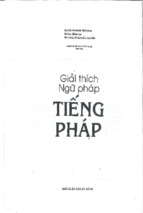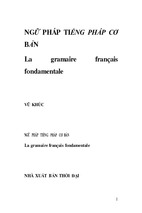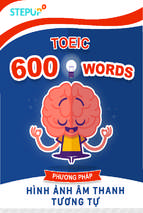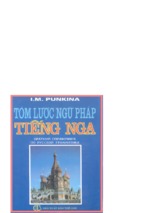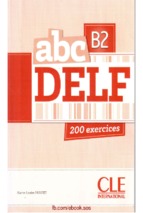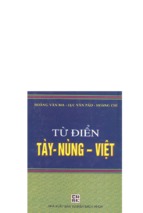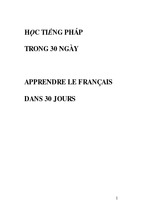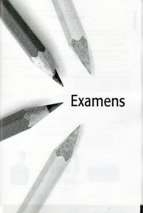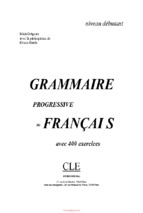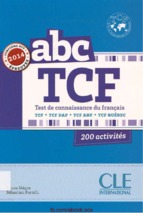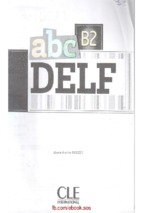INTERMEDIATE
W O RKBOOK
Contents
Unit 1
Colour
page 4
Unit 2
Performance
page 12
Unit 3
Water
Page 20
Unit 4
Opportunities
page 28
Unit 5
Travel
page 36
Unit 6
Wellbeing
page 44
Unit 7
Living space
page 52
U n its
Weird news
page 60
Unit 9
Trade
page 68
Unit 10
No limits!
page 76
Unit 11
Connections
page 84
Unit 12
Experts
page 92
lELTs practice test
page 100
Audioscripts
page 116
A nsw er key
page 129
Unit 1 Colour
1a Red alert!
r: 1.1 Complete the sentences with the present
simple or present continuous form of the verbs.
Then listen again and check.
1 P eo p le......................................(spend) over a
hundred m illion dollars every year on red
hair dye.
2
It
(seem) that a lot of us
(like) red.
3 Natural redheads aren't very common - they
(belong) to a minority.
4
In Scotland two out of five people
(possess) the gene for red
hair.
5
Some redheads
cold more.
(feel) the
6 You
(need) two copies of
the gene to get red hair.
7 That's why natural redheads
(disappear).
8 Young people often
(move)
away from their home areas to w ork or to
study.
9 The chances of someone meeting another person
with the red-hair gene
(get)
smaller.
Listening hair colour
1
W hich of these hair colours is not natural?
black
white
2
blonde
brown
grey
purple
red
1.1 Listen to a radio clip from a 'pop science'
programme. Are the sentences true (T) or false (F)?
1
2
Not m any people buy hair dye in the
United States.
In Scotland, two per cent of the population are
natural redheads.
3
The gene for red hair also gives the body
other benefits.
4
You can get red hair if both your parents carry
the gene.
5
There are more redheads in the world now
than before.
Glossary
dye (n) /dai/ a synthetic or natural substance used to change
the colour of something
roots (n) /ru:ts/your origins, the place or group of people you
come from
10 Now some scien tists.......................................
(speculate) that by the year 2100 true redheads
will be extinct.
Look at the sentences in Exercise 3. Find words
w ith the opposite m eaning to these words.
1
artificial:
2
ra re :......................................
3
majority:
4
the heat:
5
g reater:......................................
Grammar present simple and
present continuous
5 Read the article about dyes. Com plete the article
w ith the present simple and present continuous
form of these verbs.
become
cause
come
know
n ot/understand
contain
increase
n o w /re p o rt
use
Grammar stative verbs
6
Read the com m ents by shoppers in a shopping
centre. Com plete the com m ents w ith the present
sim ple and present continuous form of the verbs.
1
y o u ......................... (like) this colour?
it
(look) natural?
2
I
(look) for a shirt like this,
but in a different size.
3
Excuse me.
(belong) to you?
4
W hat
5
.......................... y o u ......................... (think) about
buying this? It's very expensive.
6
I ........................................... (suppose) it's time to go
home.
this bag
it
(taste) like?
Vocabulary time expressions
7 Write sentences about Jamie. Use the present
simple or present continuous and put the time
expression in the correct position.
1
go out with friends / at weekends
2
spend time w ith his family / today
3
make lunch / at the mom ent
things. Textiles, cosmetics, food and drink
products usually a ll2
4
make lunch / usually
food dyes. Some d y es3
5
do housew ork / every day
6
do DIY / never
W
__dyes to change
e1 .
the colour of or add colour to many
from natural sources and others are synthetic.
However, doctors 4
that the
number of people with allergic reactions to dyes
5.,.......................... ........... .W e 6
that in a number of people some natural
d y es7
problems. However, w e8
why this reaction 9
common.
rashes or respiratory
more
1 b What colour is Tuesday?
2 Underline words in the text connected to the
Reading synesthesia
senses. Decide if they are nouns or verbs.
Then use some of the words to complete
these sentences.
1 Read about M ark and answer the questions.
1
2
3
4
5
6
Is synesthesia an illness?
1
I don't like the
bananas.
2
W hen my cat
singing, it gets very excited.
a bird
3
M ost people's
worse as they get older.
gets
4
Our sense o f ................................. is most
sensitive in our fingertips.
5
Anim al noses have a highly developed
sense of
, compared
w ith humans.
W hat happens when people have synesthesia?
Does it affect M ark's life at all?
How is M ark's synesthesia different from Kandinsky's?
W hat's the most frequent example of synesthesia?
W hich part of the body is involved in synesthesia?
of
What colour
is Tuesday?
My name is Mark. I’m Canadian and I have
synesthesia. It’s not a disease (although I think it
sounds like one) and it doesn’t really have any serious
effects on my day-to-day life, but it is a strange
condition. Synesthesia happens when two or more of
your se n se s get mixed up. S o in my ca se, for example,
I taste w ords. My se n se of taste works even when I’m
not eating anything, but when I hear or read certain
words. For me, the word ‘box’ tastes of eggs. That’s
just one example, of course. I’m reading one of the
Sherlock Holmes stories at the moment and ‘Sherlock’
is another ‘egg’ word! It’s a bit too much sometimes.
There are quite a few famous people with synesthesia:
artists like David Hockney and Kandinsky, and musicians
like Stevie Wonder and Liszt. Unfortunately for me I only
share my synesthesia with them, not any great artistic
skills. I read that Kandinsky’s synesthesia mixed colour,
hearing, touch and smell. To be honest, I don’t think I’d
like that. It seem s very complicated.
My sister is synesthetic too and she sees words in
colour. So when she sees the word ‘Tuesday’ or just
thinks of the word ‘Tuesday’, she gets the feeling of
‘brown’. Actually that kind of synesthesia, where the days
of the week are coloured, is the most common type. I
read somewhere that synesthesia is connected to the
way our brains develop language and that there’s a link
between sounds and shapes. I don’t understand the
idea very well, but it sounds fascinating.
Unit 1 Colour
Grammar questions
b
3 W rite the m issing word in each question. Then
Read the statem ents. Use these words to write
follow -up questions. You can write more than one
question for each statement.
write the answers.
1
W here M ark com e from?
2
else in his fam ily has the same condition?
3
W hat the nam e of his condition?
4
sense gives M ark problem s?
5
W hat Stevie W onder fam ous for?
6
1
This is a photo of one of m y brothers.
2
I work in marketing.
3
We go to France every year.
4
I like to go hom e for the holidays.
5
I w ant to learn Japanese after English.
6
I love detective stories. I read for at least three
hours every day!
W hat colour M ark's sister associate with
Tuesday?
4 Dictation questions
Vocabulary feelings and
personal states
6
Com plete the sentences w ith these words.
1.2 Listen and w rite the questions. Then
com plete the answ ers for yourself and find out if
you have synesthesia.
1
YOU:
knowledge
power
Y O U :...................................................................................
: 1.2 Listen to the questions in Exercise 4 again.
mourning
passion
Good
2
Are there any general
questions in this quiz?
3
I have no
not the boss.
4
The authorities announced two days of official
5
M y friend has a
for food. She's
alw ays looking for new recipes.
in your new job!
to do anything. I'm
7 M atch and w rite the words w ith the comments,
courage
5 Pronunciation questions
d
luck
1
YOU:
YOU:
W hat are ... ?
W here are ... ?
W hy do ... ?
Can you ... ?
Do you ... ?
How many ... ?
happiness
love
sadness
wisdom
1
T h a t's Sunday m orning w hen I know I can get
up late.'
Draw the correct arrow above each question. Then
practise the questions.
2
'W hen I talk to m y boss. H e's so scary!'
3
'W hat I get from m y fam ily every day.'
4
'In the advice m y grandparents give m e.'
5
'W hen I read about som e people's
difficult lives.'
1c A sense of colour
Listening colour blindness
1 Look at the two images. W hat number
can you see in Image 1?
3 %
1.3 Listen again. Answer the questions.
1
W hat percentage of m en have colour blindness?
2
W hat problem does H olly have with her DVD player?
3
W hat colour is better for indicators on electrical goods?
4
W hat are the three colours the cells in our eyes can see?
5
W hat kind of jobs are not open to colour-blind people?
Word focus see
4 Look at two different meanings of the verb see from the
interview. Then match the sentences with see (1-8) with
the uses (a-h).
One kind of cell sees red. = 'the sense of sight7
Image 1
Yes, of course, I see. = 'show ing understanding'
£1
* %
,*
* r •
» *****
m *% * •
•, * ** . A
0 * ' JSF
W
*
*, •W
*
V * * .'■’'iftS i-’ "
*
m a—
a
*
• •*
• •
•
W #
..•
•
••.
• tu fll
•
1
I see better with my glasses.
2
Can you sit down? I can't see the screen.
3
As I see it, that's the best idea.
4
Do you see what I mean?
5
'You have to switch it on here.' 'O h, I see.'
6
I see that Janet is leaving the company.
7
Come and see us this weekend.
8
Are you seeing anyone special at the moment?
a
checking understanding
b
giving news
c
giving your opinion
d showing understanding
Image 2
e
the sense of sight
These tw o images are similar to the ones
opticians use to test if someone is colour-blind.
People w ith normal colour vision see a number
(as in Image 1). Colour-blind people can't see
the number (Image 2).
f
to be in a relationship
2 %
1.3 You are going to listen to an
interview with someone who is
colour-blind. First, choose the option you
think is correct. Then listen and check.
1
Most colour-blind people can't tell the
difference between red and blue /green.
2
Colour blindness is more com m on in
men / women.
3
Our eyes have two / three types of cell
that see colour.
4
M ost colour-blind people lead /can't
lead a norm al life.
g visibility of something
h visit someone
5 Replace four expressions in these exchanges with the
correct form of see.
1
A: Louisa is going out with someone new.
B: That's nice for her! Who is he?
A: I don't think I can help you.
B: I understand. Well, thanks anyway.
A: I'm getting a lot of headaches.
B: You need to go to a doctor.
A: Do you understand how easy it is?
B: Oh yes. Thanks.
Unit 1 Colour
1d First impressions
Real life opening and
closing conversations
1 Put the words in order to m ake
4 Pronunciation short questions
d M atch the com m ents (1-6) w ith the questions (a-f) to make
short exchanges.
statem ents and questions. Then w rite O
for ways of opening conversations and C
for ways of closing conversations.
1
I'm a colleague of Daniel's.
a
Can you?
2
She is one of our best customers.
b
Do you?
3
I work in our m ain office.
c
Have you?
1
4
W e've got a branch in your area.
d Is she?
5
It's one of our biggest shops.
e
Are you?
6
I can call you tomorrow.
f
Oh, is it?
2
3
a / you / pleasure / to / it's / meet
don't / card / give / w hy / m y / I /
you
m yself / m ay / introduce / I
b%
1.4 Now listen to the exchanges. Tick (/ ) the questions
where the speaker sounds interested.
C % 1.5 Listen to the com m ents again. Reply to each
com m ent w ith a question. Sound interested in each case.
4
stay / touch / in / let's
5
you / to / talking / good / been / it's
6
you / to / very / I'm / m eet / pleased
5 Grammar extra auxiliary verbs in short questions
and answers
► AUXILIARY VERBS IN SHORT QUESTIONS AND ANSWERS
We use auxiliary verbs to make short questions and short answers.
The auxiliary verbs are be, have, do and modal verbs. (Be, have
and do can also be main verbs.)
2 Com plete this conversation w ith four of
the sentences from Exercise 1.
W: Good m o rn in g !1
I'm W ill Marr.
G: How do you do? M y nam e's Grace
Larsen.
W: 2
Grace. Are you are colleague of
Daniel's?
G: Yes, I am, actually. We're both
w orking on this project.
[...]
W: Well, G ra ce ,3
I'm very interested in your ideas.
G: T h an ks.4
You can reach me on both those
two numbers.
W: OK, thanks.
3 Com plete these ways of talking about
w hat you do with prepositions.
1
I w ork
2
I m ostly w ork
projects.
3
I'm an adm inistrator
Brow n's Bank.
4
I'm
5
I'm looking
moment.
6
I'm a student
Examples
be {am, are, is)
have {have, has)
modal verb {can, must, etc.)
present simple {do, does)
present continuous {am, is, are)
Are you? Yes, I am.
Has it? No, it hasn't
Can she? No, she can't
Do you? Yes, I do.
Are they? Yes, they are.
Write short questions or short answers in response to these
comments.
1
I'm learning Greek at the moment.
2
This paint is selling very well.
3
Have you got m y telephone number?
Y es,..................................................................
4
Do you think you can win?
Y e s,..
5
Can you see w hat's happening?
N o ,..................................................................
6
M y colleagues are excited about this.
a design company.
special
Auxiliary verbs
6 Listen and respond meeting people for the first time
Custom er Services.
a new job at the
City College.
% 1.6 Listen to comments from conversations where people
meet for the first time. Respond with your own words. Then
compare your response with the model answer that follows.
HUSK
Hello, how are you? M y
name's Grace Larsen.
I'm very pleased to meet
you. I'm Alberto Costa.
1e About us
Writing a profile
1 Writing skill criteria for writing: text type,
style, reader, purpose and structure
a
2
Rewrite the sentences using the words in brackets
in the correct position. There is sometimes more
than one possibility.
1 I am working on a new product, (this year)
Read the extracts from company communications.
Choose the correct option.
2
I can help you with new projects, (also)
1
3
We are advising a national company, (currently)
4
We are completing a major contract, (at this
time)
5
We have offices in all main cities, (in addition
to this)
6
We work in TV. (too)
text type: letter / website
I'm pleased to inform you that we are
offering a new range of services.
2
style: form al / informal
Check out our new range!
We think it’s really cool!
— miwim w w —
g .n
..........................
.......................................... iiii m iiiimii.bh w.i ii 11 ii. mi.i i.i nil
3 Checking accuracy
3
reader: known / not known
Find and correct ten spelling mistakes in this profile.
Please note the following changes to your
account.
1 ..................................
2
....... W.
;----- -
••----- -......... -.. -... ........ -..... .. -.. --~---
3 ...............................
4
purpose: to give information / to advertise
a product
Our clients are national and
international com panies.
4 ...............................
5 ...............................
6 ............
7 ...............................
8 ....................
9
b Read the information from a company profile.
M atch the sentences (a-d) with the headings (1-3).
There are two sentences with one of the headings.
Then use numbers with the headings to organise
the information in a logical way.
1 About our work 12 Satisfied customers | 3 About us
0 ‘W e always get fantastic results when w e use
Intersect’ Blacks International
© A s well as this, w e are working with a mobile
phone operator on a new cam paign. W e work in
all areas of advertising.
© At the moment, w e are developing a new logo
for a national radio station.
© W e are a design agency with twenty years’
experience.
10
.................
I am a freelance designar in the fashion industry.
I also work as a consultent to a sportswear
manufacturer. My especial areas of interest
include working with natural textiles and dies.
I am currently developping a range of baby
clothes which are non-alergic.
Outside of work, I have a pasion for abstract
art, especially the colourfull works of Kandinsky.
I am continualy trying to improve my own skills
as a paintor.
Glossary
freelance (adj) /friilains/ doing work for different organisations
rather than working all the time for one
Unit 1 Colour
Learning skills study routines
Wordbuilding noun and
verb —►noun
Learning English is easier and you are more
successful when you follow a routine.
► WORDBUILDING noun and verb -> noun
We can change the ending of some nouns and verbs to
make words that describe what people do.
anthropology -► anthropologist
win —►winner
4 Draw a table showing your waking hours for
each day of the week. Write your activities under
the times. Then choose two colours and block
off times:
• w hen you are free to study
• when you can study at the same time as you
do something else, e.g. read on the train
1 Com plete the words in the table.
Noun/Verb
Suffix
Noun
anthropology
art
biology
science
-ist
anthropologist
win
adm inistrate
compete
-er/-or
contest
assist
consult
participate
■ant
contestant
optics
electricity
library
music
politics
■lan
optician
photograph
Check!
8
Fill in the spaces (1-6) with places from Student's
Book Unit 1 and find another place.
A ...................................... helps you find books
to borrow.
1
Orange means 'happiness' in this country
2
There's a traditional prayer for peace here.
David H ockney is one of m y favourite
3
Van Gogh painted 'Yellow H ouse' here.
4
The city that Hertz rental cars and the first
yellow cabs come from.
5
Blue can be a sad colour in this country.
6
One of the South American countries where
the Quechua people live.
Questionnaire for sem inar
Please give us your views!
M y new glasses are ready for me at the
's.
5
:
This is a great black and w hite im age by a
lo c a l...................................... .
6
brcAtl
Use your table to work out a realistic study
routine.
plural) from Exercises 1 and 2.
4
uorfe.
frAln
How long do these activities need? Write 5, 30
or 60 (minutes) next to each one.
• reviewing vocabulary
listening
reading a m agazine or graded reader
doing Workbook exercises
doing interactive (CD-ROM/online) exercises
watching a DVD
doing hom ework for class
3 Com plete the sentences w ith nouns (singular or
3
coffee
M atch activities from Exercise 4 with colourblocked times in your table from Exercise 3.
design
direct
learn
manage
research
speak
teach
train
2
9 A.M. | 10 A.M. | II A.M.
winner
2 These verbs all take the sam e suffix. W hich one?
1
7 A.m. | % A.m.
M y friend's a n ........................................ He can fix
your lights for you.
E W
Unit 2 Performance
2 a Street life
Reading La Rambla
1 Read what people say about La Rambla, a famous street
in Barcelona. Write the names of the people.
2 Read w hat people say again. Are the
sentences true (T) or false (F)? Or is there
not enough information (N) in the text?
1
Everything is new and exciting to
2
likes the reaction he gets from
people on La Rambla.
1
3
Living on La Rambla has had a positive effect on
's art.
2
The perform ances are free to the public.
3
There is always some kind of performance
happening on La Rambla.
4
It's impossible to sleep if you live near
La Rambla.
4
has been there for a long time.
5
likes the variety of La Rambla.
La Rambla attracts entertainers from
around the world.
44 This place is full of life, every hour
of every day. I’ve felt much more alive
since I came here. It’s really inspiring.
My paintings have got so much more
adventurous here. You can go out at
night and always find something to
do. I’ve never seen La Rambla without
people. The place never sleeps.
99
Theo, portrait painter. Originally
from Amsterdam.
I’ve just arrived and I’ve already
heard about twenty different languages!
It’s awesome! There’s so much going
on. Everywhere you look there’s some
kind of performance. I especially like
the puppeteers I saw this morning. I’ve
never experienced anything like that
before.
99
Kristen, language student
Originally from Chicago.
6 6 There is something very special about Barcelona and especially La
Rambla. Every time you leave the house and go onto the street, you find
some friends. It’s more than a street and it’s more than simply performing.
It’s a way of life. I’ve known the other performers for a long time now they’re like family. W e help each other out.
99
Carmen, ‘living statue’. Originally from Colombia.
44 I haven’t lived here long enough yet to really understand it. But it’s a
fantastic mixture. Even the flower stalls are like art installations. You can
see, I don’t know, theatre, jugglers, acrobats, living statues, tango dancers
from Argentina, musicians from Africa ... performers from all around
the world.
99
Tara, singer. Originally from London.
44 W e’ve been here for a few
months. We adore this street. There’s
entertainment on every corner. And
when we play and maybe ten people
start dancing - it’s beautiful. It’s a
great place.
99
Alvaro, musician. Originally
from Angola.
3
6
Find words for these perform ers in the text.
1
Rewrite the sentences adding already, just or yet.
1
Have you seen Billy Elliot?
2
D on't reserve me a ticket. I've bought mine.
3
I can 't m eet you later. I haven't finished my
work.
4
W e've been to see Lady Gaga. Wow!
5
I arrived this m orning and I've seen dozens of
perform ances.
6
I'm not sure w hat that means! I've started
learning Spanish.
7 Pronunciation weak forms
1.7 Listen and practise the sentences from
Exercise 6.
2
Vocabulary musical styles
8
Grammar present perfect
simple
4
Underline the present perfect simple verbs in the
text about La Rambla. How m any are there?
5
Com plete the sentences with the present perfect
form of the verbs and/or or since where necessary.
1
We
here
everything we
(be)
a few weeks and we love
I
night
are great.
I got here and the crowds
W e ......................... ................................(never / have)
so m uch success before.
4
M y frien d ..
........................................ (live) here
a couple of m onths and now I
(decide) to join her.
I ............................ .............................(always / want)
to sing in public and now I can.
I cam e here, I
m ore confident.
6
lively
melancholy
repetitive
rhythmic
1
This m usic has an interesting and pleasant
tune.
2
It's different from anything you've ever heard
before.
3
It's good for dancing to.
4
You can 't stop singing it once you've heard it.
5
It's a little bit sad.
6
It's not really pleasant to listen to.
7
Every song sounds the same to me.
........................... (perform) every
3
5
catchy
cheerful
melodic
moving
tuneless
unusual
(see)
so far.
2
Write one of these words for each sentence.
(become)
I ........................... .................... (not / hear) this
m usic before. It's quite unusual.
2 b One of a kind
Grammar verb patterns: -ing
form and to + infinitive
3 Grammar extra remember, stop and try
► REMEMBER, STOP and TRY
Both the -ing form and to + infinitive can follow these
verbs, but there is a change in meaning.
1 Complete the sentences with these words.
I agreed
I finished
I hope
I keep
I need
I really enjoy
stop + to + infinitive refers to the reason for stopping:
I usually stop to rest when I'm tired.
1
teaching m y students to sing.
2
to teach music when
I
stop + -ing refers to the activity which stops:
I only stop practising when the studio closes.
My schedule
We decided
Complete the sentences with the -ing form and to +
infinitive form of the verbs.
leave college.
3
m aking mistakes
1
W hen I'm tired, I stop
(dance).
2
If a new student comes in, we stop
(introduce) ourselves.
3
I usually rem em ber......................................
(change) m y clothes before I paint.
when I dance.
4
to m ake more
progress with my performance.
5
involves getting up
early every day.
6
to involve the
audience in our performance.
4
I remember
(learn) the
waltz with m y father years ago.
7
taking classes last year.
5
I'm trying
(find) a way of
keeping in touch with old friends.
6
I've tried
(join) Facebook,
but most of m y friends don't use it.
8
to take a role in the play.
2 M atch the questions (a-b) with the sentences (1-9).
Then complete the questions and sentences with
the correct form of the verbs in brackets.
a
b
I'm thinking ab o u t......................................
(go) to the circus next week. Do you want
(come)?
W hat have you decided......................... ............
(do) for your birthday?
1 I intend
this year.
(take) it easy
2
I think it's too late
(get) tickets.
3
I'm hoping
theatre.
4
I'm not sure. 1 keep
(change) my mind.
5
No, thanks. I don't e n jo y ......................................
(watch) animals perform.
6
Nothing special. I'm no good at
............ ....... ................(plan).
7
Nothing yet. But my friends have promised
(not / give) me a
surprise party.
(go) to the
8
OK, why not? I need
something different.
(do)
9
(see) animals doing tricks
isn't my idea of entertainment.
Listening man on a wire
4
%
1.8 Listen to two friends, Robin and Judy,
talking about this photo. Are the sentences true
(T) or false (F)?
1
Judy doesn't like circuses.
2
Philippe Petit climbed up the outside of the
World Trade Centre.
3
The photo m akes Robin feel nervous.
4
Petit has walked betw een towers in
several countries.
5
It took Petit six years to organise the World
Trade Centre performance.
5 % 1.8 Listen again. Complete the sentences.
1
I wonder why he wanted
that?
2
I can't imagine
3
He was lucky not
4
He started in Paris in 1971 and then he kept
5
He decided......................................it in 1968.
6
................. ....................everything took six years.
7
And when people noticed him, he started
on a wire.
off.
Unit 2 Performance
8
b Write sentences w ith expressions from Exercise 7a.
Com plete the sentences w ith these words.
cheer up
cry
smile
smile
1
D on't
2
Com e on!
cry
smile
laugh
laughing
actors
authors
ordinary people
sad
comedians
politicians
musicians
rock bands
Example:
. It's only a film.
for the camera!
3
! It's not the end of the world.
1
4
The situation was so absurd we didn't know
whether t o ...............................or
2
5
It's great to hear you
You've seemed a bit
4
6
H ave you noticed? W hen you
at people, th e y ................................back.
for a change.
recently.
3
5
6
8 Dictation performing
Vocabulary emotions
1.9 Listen and w rite the sentences. Then decide
7 Vocabulary extra performing
if they are true for you.
B Write these verbs w ith the nouns.
1
2
give
make
play
sing
star
tell
w rite
3
an instrum ent
4
a joke
5
a speech
6
karaoke
an album
a play
in a film
'When I see three oranges, I juggle;
when I see two towers , / walk.'
Philippe Petit, High-wire artist, 1974
2c Life in a day
Listening a film review
1 % 1.10 Listen to a review of the film Life in a day.
Answer the questions.
1
W hy is the film called Life in a day?
2
W hat kind of film is it?
3
W ho filmed it?
4
Are there any big stars in it?
5
W hose idea was it?
6
Where can you see it?
Word focus have
4 M atch the extracts (1-9) from the film review with
the uses of have (a-e).
1
It has m om ents of drama.
2
Kevin M acdonald had an idea.
Glossary
footage (n) /‘futids/ sequence of images on film
shot (v) /Jot/ past participle of shoot: to record on film
3
W hat have you got in your pocket?
4
M acdonald and his team had 4,500 hours
of footage.
2 % 1.10 Listen again. Write the information.
5
Macdonald didn't have a plan.
6
an English student having a drink ...
7
market sellers in the Philippines having lunch ...
8
The film has been pretty successful.
9
If you've missed i t ...
1
the date of the film
2
the length of the film
3
the number of cameras
4
the number of countries that received cameras
5
the hours of footage
6
the number of video clips
7
the number of countries that sent footage
3 W hat is the review er's opinion of the film? Choose
one option (a-c).
a
It's an unusual idea, but in the end it's a
boring film.
b
It's one of the best films she's ever seen.
c
It's an interesting idea that has mainly
succeeded.
a
an auxiliary
simple)
b an auxiliary
c a m ain verb
d a m ain verb
e a m ain verb
verb (with the present perfect
verb (with got)
(ownership or possession)
(past tense, without got)
(collocation with a noun)
5 Complete the sentences with the correct form
of have. Use got where possible.
a great time last night.
1
We
2
Kevin Macdonald
some great films.
you
3
made
any of his films
on DVD?
4
Let's
5
I
6
Do you want to
7
They're
film preview.
8
They
the cameras at first.
a drink after the show.
never been to Los Angeles.
lunch early today?
a party after the
some problems with
Unit 2 Performance
2d What's on?
Real life choosing an event
5 Pronunciation intonation with really,
absolutely, etc.
1 Com plete each suggestion in tw o ways.
1
see a film tonight?
2
2
seeing a film tonight?
% 1.11 Listen and repeat the sentences. Pay
attention to your intonation.
6 Grammar extra adjectives ending in -ed
and -ing
Respond to this suggestion in three ways.
► ADJECTIVES ENDING IN -ED and -ING
'L et's go to the M egaScreen - the new Russell
Crowe m ovie is on.'
We use the present participle and past participle of some
verbs as adjectives: bore —►bored -► boring
-ed adjectives describe a person's state: I'm bored.
I was amazed.
-ing adjectives describe the characteristics of a thing or
person: It was boring. They were amazing.
J
Write questions for these answers.
Com plete the sentences w ith the -ed or -ing form
of these verbs.
1
There's a jazz concert at the City Hall.
amaze
move
2
I think it's by Abi Morgan.
3
It's got that guy who w as in Lost.
4
There's a late show at 11 p.m.
5
It's the story of a young boy w ho loves dancing.
Vocabulary describing
performances
4
Rewrite the sentences about perform ances as
com m ents using these words. You can use the
words in bold more than once.
absolutely
aw ful
boring
brilliant
disappointing
good
hilarious
really
1
bore
depress
disappoint
fascinate
1
W ith so m any choices, how can you say you're
?
2
Those acrobats were
I
don't know how they do that.
3
To be honest, I felt
the lack of originality.
4
It's im possible not to be
by such beautiful music.
5
A nother film about terrible childhoods? How
I
6
W hat a
play that was!
I'm still thinking about it now.
by
7 Listen and respond talking about events
very
It was the funniest com edy show you've ever
been to.
% 1.12 Listen to the questions. Respond w ith a
comment. U se your own words. Then compare
your response with the m odel answer that follows.
i
1
2
It was the w orst concert you've ever been to.
3
You fell asleep during the play.
Do you fancy going to the
theatre on Friday night?
Yeah, why not?
4
The exhibition was better than average.
5
You expected the perform ance to be better.
6
It w as the best film you've ever seen.
2e A portrait of an artist
W riting a profile
1 Writing skill linking ideas
a
Read the sentences about the Indian musician Ravi
Shankar. Cross out any options which are incorrect.
1
He started working with the Beatles in 1966,
so / therefore he was instantly in the spotlight
in the UK.
2
Although / While he's young in his mind, his
body is too frail to play an instrument.
3
Despite / In spite o f his age, he still enjoys music
by artists such as Lady Gaga.
4
English music is written down. In contrast, / For
that reason, Indian music is often improvised.
5
He appreciates most art forms, but / so he
doesn't like electronic music.
b Rewrite the sentences w ith the words in brackets.
M ake any changes to verbs and punctuation
as necessary.
a
b
Even though he's from a classical Indian
background, he's had mainstream success in
the West, (despite)
He played on Beatles records, so he quickly
became well-known in Europe, (because of this)
In spite of enjoying the m usic he made with
the Beatles, he didn't like the attention it
brought, (although)
d He loves Matisse and Picasso. Nevertheless, he
doesn't believe in owning art. (while)
e
He began as a dancer. However, he became
more interested in making music, (but)
Complete the sentences with the correct form of
the verbs in brackets. Then decide which sentences
(a-f) from Exercise lb go in the boxes. Write the
complete profile below.
1
Ravi Shankar is a classical Indian musician who
(have) huge success over
m any decades.
2
I
(follow) his work
since I
TV a few years ago.
3
(see) him on
;
T h is ........................................ (begin) decades
ago when he
(work)
with George Harrison, of the Beatles.
4
O f course, I'm too young
(remember) the Beatles.
5
I enjoy the music he
(make) nowadays.
j
___
6
I like it because it
(sound) beautiful and unusual to me. It's
really different from Western music.
7
There's so m uch different stuff out there
.......................(listen) to, and I enjoy it all.
In spite of not knowing m uch about classical
Indian music, I love his work, (although)
i
Unit 2 Performance
4 Do you m ake mistakes with any of these
Wordbuilding adjective + noun
things? Write an example.
► WORDBUILDING adjective + noun
1
the verb tense in sentences like
I
haven't met many people since I
moved here.
2
the verb form in constructions like
Listening to music helps me fe e l more
cheerful.
3
adjectives like bored/boring
Some adjectives and nouns often go together.
outside world
popular culture
1 M atch the adjectives w ith the nouns. They are all in
Student's Book or W orkbook U nit 2. M ore than one
com bination is possible.
Adjectives
bad
big
English
ordinary
rom antic
fam ous
special
living
mainstream
traditional
young
5 Keep a record of mistakes you make
Nouns
actor
comedies
couple
effects
influence
people
role
statue
student
success
often. Think about what kind of mistake
they are. Write down the correct
language and try to remember it. But
don't worry too m uch about the mistakes
that don't affect how well people
understand you. And don't worry if it
takes a while to correct your mistakes.
mood
2 Complete the sentences with adjective +noun combinations
from Exercise 1.
1
The Beatles were a
pop groups.
on m any
2
T h e .................................................... in the flat next door are
really friendly.
3
This band has been around for a couple of years but
hasn't had
yet.
4
The actress M eg Ryan appeared in a lot of
Check!
6
Answer these questions. The first letter of
each answer spells a word. W hat it is it?
1 A photo or painting of
a person.
1
2
Actors, comedians,
acrobats, singers, etc.
are a l l ........
2
3
M usic from Jamaica.
3
4
A style of m usic and
dance from southern
Spain.
4
5
A large group of people
who play m usical
instrum ents together.
5
6
The title of one of Baz
Luhrm ann's films.
6
• mistakes you make because you haven't learned the
correct word or structure yet
7
Som eone who does
clever tricks for an
audience.
7
• mistakes that are com m on to all learners with the
same first language as you
8
Really, really bad.
8
early in her career.
5
M y favourite films have amazing
that 1 can believe in.
6
[f I'm in a ................................................... , listening to
music helps me feel more cheerful.
Learning skills mistakes
M aking mistakes is part of learning. Thinking about
mistakes in different categories can help you.
3 Look at these types of mistakes. Try to write down an
example of each kind of mistake.
• mistakes that you make when speaking because you
haven't got enough time to think about what you say
• mistakes that are 'yours' - things you personally have
problems with
• mistakes that m ean people can't understand your
m essage properly
9 Joining a club is a good
way of m a k in g .....
friends.
9
10 A group of people who
sing together.
10
11
11
A kind of coffee.
Unit 3 Water
3a Underwater
Reading on assignment
1 Read the interview with Brian Skerry about his
year-long assignment photographing sharks. Write
the number of the story (1-2) next to the heading.
There is one extra heading.
a
b
c
W hat was one of your worst experiences
covering this story?
W hat was one of your strangest experiences
covering this story?
W hat was one of your best experiences
covering this story?
2 These statements are true for one or both of
Skerry's stories. Write W (whitetip),
H (hammerhead) and B (both).
l
Finding the oceanic whitetip shark is an experience I
won't forget. This is one of the most dangerous sharks in
the world, but its numbers are falling. They used to be
common around the Bahamas, but most people say they
haven't seen them for years. Just as we arrived there,
some sports fishermen in the central Bahamas saw some
oceanic whitetips when they were fishing for tuna.
So I planned sixteen days to go searching for them.
For the first few days out of Palm Beach, we didn't see
a thing. Then, on the fifth day, I was looking out from
the bridge when I spotted a shark on the surface. The
white tip of its dorsal fin was sticking out of the water,
so I knew we had an oceanic whitetip. I quickly put on
my wetsuit and jumped in the water. The shark was very
curious about me and swam right up to me. It was about
three metres long and it even stayed around while we
were putting the cage in the water for the scientist. I got
some great pictures! That was really the high point of
the assignment.
At the end of the assignment, after a year of work, we
were going after the great hammerhead shark. This
species is so elusive that there were no pictures of it
up until five or six years ago. For the entire first week,
the weather was appalling and it was impossible to
dive. It w as very frustrating. Then, on the eighth day,
my assistant had to fly home because his mother was
seriously ill.
Suddenly, I was working alone as well as trying to deal
with the bad weather. That was definitely the worst
moment on the assignment. It is so important to have a
really good assistant with you. Without him there, my
workload more than doubled. W hile I w as trying to
decide what to do, the weather unexpectedly improved
and I got a couple of not-bad days! And on one of those
days, everything clicked and I got some great pictures
of a hammerhead. I was lucky.
1
The sharks were difficult to find.
2
Bad weather made it almost impossible to do
any work.
3
Some fishermen told Skerry where the
sharks were.
4
Skerry had to work without an assistant.
5
Skerry got into the water as soon as he saw
a shark.
6
The shark spent some time swimming close
to Skerry.
7
Skerry w asn't sure what to do.
8
Skerry was pleased with the photos he took.
3 Find these words and expressions in the text.
Choose the correct option.
1
spotted: photographed / saw
2
high point: best moment / top o f the boat
3
deal with: survive /solve the problem
4
workload: amount o f work you have to do /
problems
5
doubled: increased by twice as much /
increased by three times as much
6
clicked: was quiet / was successful
Glossary
bridge (n) /brids/ part of a boat or ship where the captain
normally stands
dorsal fin (n) /'dDirsal fin/ the part of a shark's back that
sticks up
elusive (adj) /'ilusiv/ extremely rare and difficult to see
wetsuit (n) /'wetsuit/ rubber clothes for water sports
Grammar past simple and past
continuous
4 Write questions for these answers. U se the
inform ation from the interview.
Pronunciation irregular past simple verbs
1.13 Listen to the sentences and write the
irregular past simple verbs.
1
2
1
W h e n ...........................................................................?
W hen they were fishing for tuna.
2
W h e n ...........................................................................?
W hile he was looking out from the bridge.
4
H o w .............................................................................?
Because the white tip of its dorsal fin was
sticking out of the water.
6
3
4
W h a t............................................................................?
They were going after the great hammerhead
shark.
5
W h a t............................................................................?
Skerry's assistant flew home.
6
W h a t............................................................................?
He was trying to decide w hat to do.
5 Com plete the sentences w ith the correct form of
W e ...................................... a shark w hen we
........................................ (see / surf)
2
5
7
b W hich verbs have the same sound?
................................a n d ..............................
and
Vocabulary water and
recreation
7 Write these words in the correct place.
the verbs in brackets.
1
3
I
back into the boat
w hen I ...................................... m y cam era into the
canoeing
diving
fishing
jet-skiing
kayaking
rafting
rowing
parasailing
sailing
scuba diving
snorkelling
surfing
swimming
synchronised swimming
w ater polo
water-skiing
windsurfing
water, (climb / drop)
3
It
sun
a beautiful morning. The
Underwater
over the horizon and
the fis h ...................................... . (be / com e up /
jump)
4
It
to rain while we
a really good sequence.
(start / film)
5
On the water
We..........................................in the boat, quickly
...................................... our equipm ent and
home, (get / pack up /go)
6
W hile w e ...................................... back to land,
the wind su d d en ly ...................................... a lot
stronger, (sail / get)
- Xem thêm -

